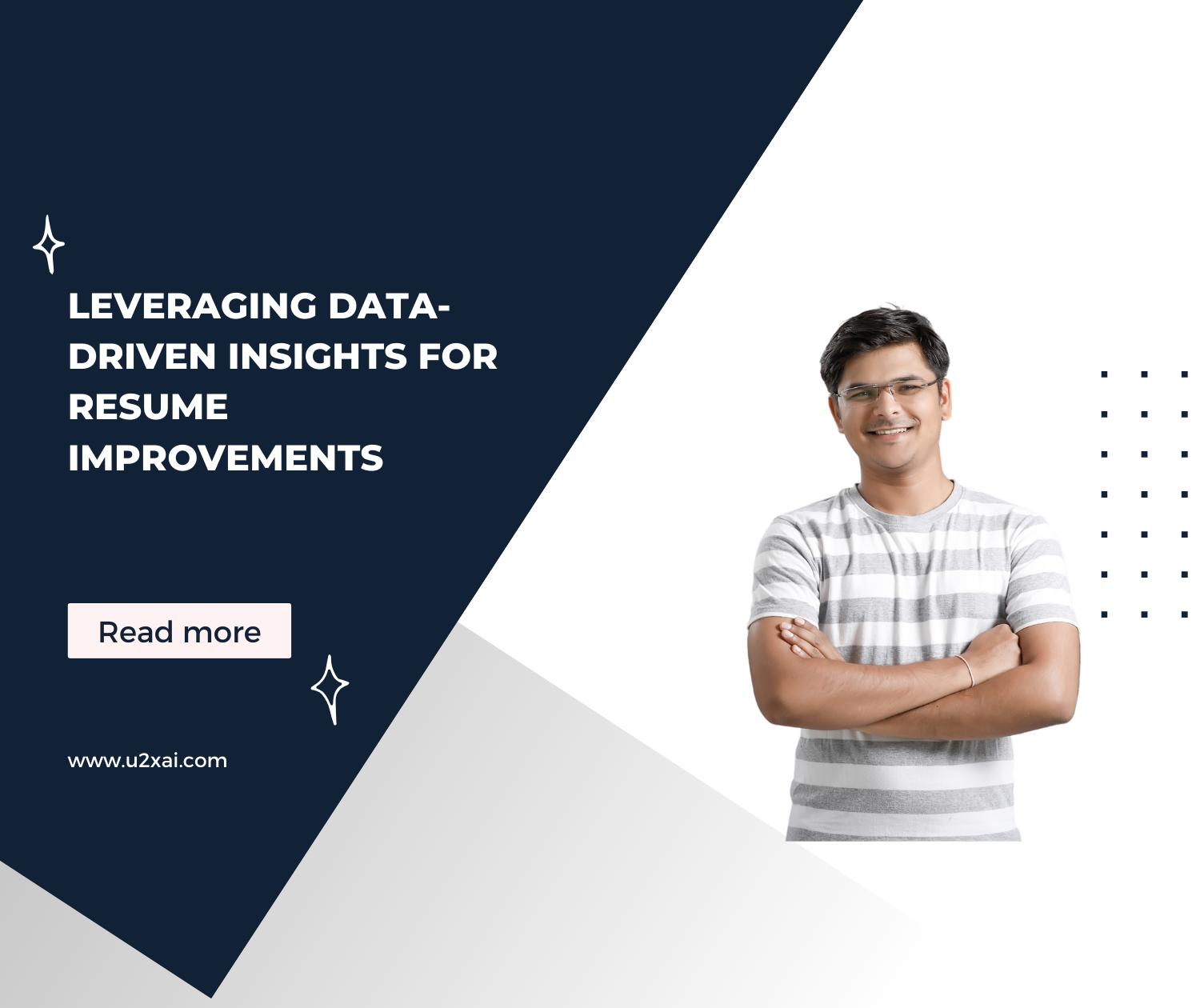Leveraging Data-Driven Insights for Resume Improvements
1. Introduction to Data-Driven Insights in Resume Building
In today’s competitive job market, having a standout resume is crucial. Data-driven insights refer to the analytical feedback provided by AI resume builders that help candidates understand what elements of their resume are effective and which areas need improvement. By leveraging these insights, job seekers can enhance their resumes, tailoring them to align with what employers are looking for. This approach not only increases the likelihood of catching the attention of hiring managers but also improves the chances of passing through Applicant Tracking Systems (ATS), which many companies utilize to filter candidates.
2. Understanding the Metrics Provided by AI Resume Builders
AI resume builders analyze your resume and provide metrics based on various criteria. Common metrics include keyword density, readability scores, and even engagement rates compared to industry standards. For instance, a tool may indicate which keywords are lacking or suggest adjustments to simplify complex terminology, ensuring that your resume can be read easily by both ATS and human recruiters. Understanding these metrics is essential for making informed revisions that enhance your resume's attractiveness.
3. How to Interpret Your AI Tool's Feedback
Interpreting feedback from AI tools requires a critical eye. Not all suggestions are necessarily valid—it’s essential to discern which feedback aligns with your career goals. For example, if the tool points out that your resume lacks specific industry keywords, use that information to enhance your resume. However, always consider the context of your background and the role you’re applying for before implementing changes. This will help ensure that your resume remains authentic to your experience.
4. Keyword Optimization: The Data Approach
Effective keyword optimization begins with analyzing job descriptions in your targeted field. Use data-driven insights to identify strong keywords relevant to your industry and include them strategically throughout your resume. For instance, if a job posting frequently emphasizes “data analysis” and “problem-solving,” make sure these phrases appear in your skills or experience sections. Case studies have shown that applicants who optimized their resumes with relevant industry keywords significantly improved their visibility to recruiters, leading to more interviews.
5. Adjusting Formatting Based on Analytics
Formatting plays a vital role in how your resume is perceived. AI tools often analyze formatting trends in successful resumes within your industry. For example, if certain resume formatting—like using bulleted lists or specific section headers—tends to yield better results, consider adopting these practices. Data insights might suggest improvements in layout or design elements that make your resume more visually appealing and easier for hiring managers and ATS to parse.
6. Personalizing Content Using Analytical Insights
Utilizing data to personalize your resume is key. Start by analyzing the insights that highlight your top skills and achievements. Tailor your resume to align these insights with specific job applications. For instance, if data shows that project management and communication are valued traits in job postings for your desired role, make sure to elaborate on those experiences. Customization driven by data not only showcases your qualifications but also signals to employers that you’re a thoughtful candidate who pays attention to detail.
7. Tracking Progress: Measuring the Success of Your Resume
Once your resume has been revised using data-driven insights, it's essential to track its performance. Set clear benchmarks, such as the number of applications submitted or interviews received. Use tools to monitor how often your resume leads to callbacks. If you notice that certain changes correlate with an increased response rate, you can reinforce those strategies in future applications. This continuous cycle of revision and tracking can greatly enhance your job search success.
8. Balancing Data Insights with Personal Storytelling
While data-driven insights are invaluable, it’s crucial to balance them with your personal narrative. A strong resume doesn’t simply list skills and experiences; it tells a story about your professional journey. While you can use metrics to identify what skills to highlight, don’t forget to bring in your personal achievements and soft skills that set you apart. For example, rather than just stating, “Led a team of five,” consider expanding on what you learned from that experience or how that leadership made a positive impact.
9. Future Trends: The Role of AI in Resume Analytics
Looking ahead, the role of AI in resume analytics is poised to evolve further. As technology improves, we can expect AI tools to provide even more sophisticated insights, such as predictive analytics that suggest the best times to apply for jobs based on market trends. Additionally, advancements in natural language processing may enhance how these tools analyze resumes, making it easier for applicants to create optimized and targeted documents effortlessly.
10. Conclusion: The Power of Data in Crafting Successful Resumes
Incorporating data-driven insights into your resume-building process is a strategy that can yield significant returns in your job search. By understanding the metrics, interpreting feedback accurately, and balancing data with personal storytelling, you can create a compelling resume that stands out to recruiters. As AI tools continue to advance, embracing these insights will become increasingly essential for job seekers who want to maximize their chances of career success.


